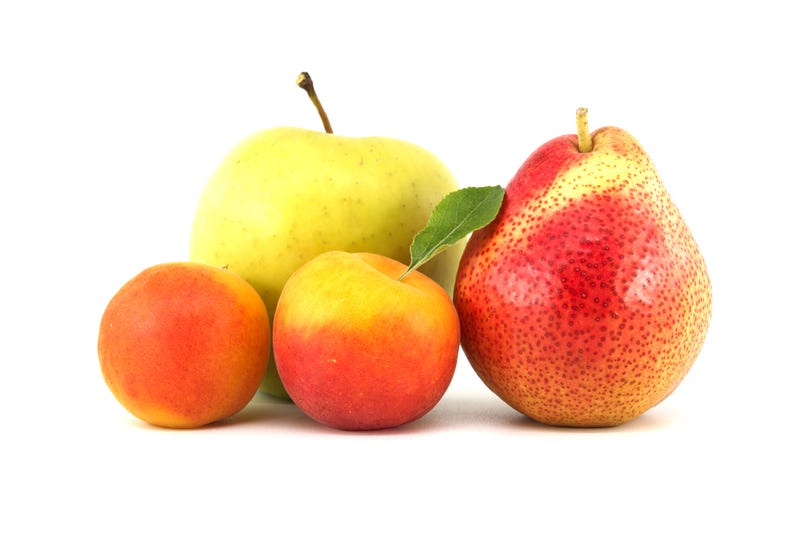
Apples, apricots and sweet cherries don’t just taste great – they could also help fight against memory loss, according to research published Tuesday in the Proceedings of the National Academy of Sciences journal.
These are all examples of flavanols, or “phytochemical compounds found in high concentrations in a variety of plant-based foods and beverages,” per the University of California, Davis.
Researchers at Columbia and Brigham and Women’s Hospital/Harvard who conducted the recent large-scale study found a diet low in flavanols was linked to age-related memory loss. They used results of tests designed to detect memory loss due to normal aging and found that replenishing these flavanols for flavanol-deficient adults over age 60 improved performance.
More than 3,500 healthy older adults participated in the study. There were randomly assigned flavanol supplement pills containing 500 mg of flavanols – including 80 mg of epicatechins, a substance found in flavanols – or placebo pills.
After a year, those assigned to take the flavanol supplement who initially reported that they consumed lower baseline levels of flavanols saw their memory scores increase by an average of 10.5% compared to placebo and 16% compared to their memory at baseline. Annual testing saw that this improvement was maintained.
“The improvement among study participants with low-flavanol diets was substantial and raises the possibility of using flavanol-rich diets or supplements to improve cognitive function in older adults,” said Adam M. Brickman, a professor of neuropsychology at Columbia University Vagelos College of Physicians and Surgeons and co-leader of the study.
According to UC Davis, other flavanol-rich foods and beverages include: beans, fava beans, broccoli, cherry tomatoes, chives, cranberries, kale, leeks, pears, onions, red grapes, tea and white currant.
“The identification of nutrients critical for the proper development of an infant’s nervous system was a crowning achievement of 20th century nutrition science,” said Scott A. Small, the Boris and Rose Katz Professor of Neurology at Columbia University Vagelos College of Physicians and Surgeons and senior author of the recent study. “In this century, as we are living longer research is starting to reveal that different nutrients are needed to fortify our aging minds. Our study, which relies on biomarkers of flavanol consumption, can be used as a template by other researchers to identify additional, necessary nutrients.”
Per a press release from Columbia University Irving Medical Center, the research published Tuesday builds on over 15 years of research in Small’s lab. His research is focused on memory loss changes in the dentate gyrus, an area in the brain’s hippocampus, a region “vital for learning new memories.”
A study on people showed that flavanols improved memory by impacting the dentate gyrus.
“Additional research, in mice, found that flavanols – particularly a bioactive substance in flavanols called epicatechin – improved memory by enhancing the growth of neurons and blood vessels in the hippocampus,” said the press release.
Going forward, researchers intend to conduct a clinical trial on replenishing flavanol levels.
“Age-related memory decline is thought to occur sooner or later in nearly everyone, though there is a great amount of variability,” says Small. “If some of this variance is partly due to differences in dietary consumption of flavanols, then we would see an even more dramatic improvement in memory in people who replenish dietary flavanols when they’re in their 40s and 50s.”
Follow KNX News 97.1 FM
Twitter | Facebook | Instagram | TikTok


